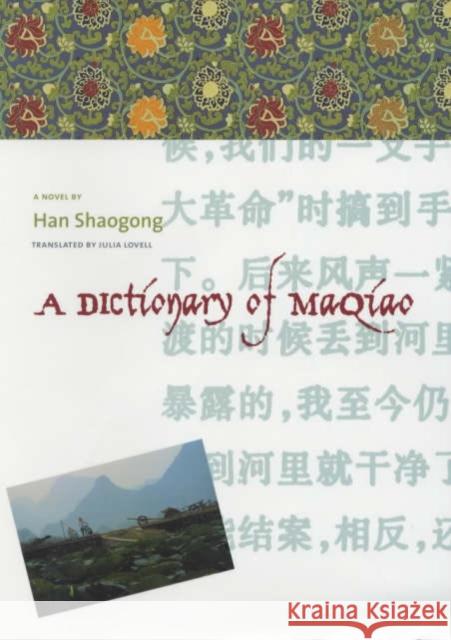A Dictionary of Maqiao » książka
topmenu
A Dictionary of Maqiao
ISBN-13: 9780231127448 / Angielski / Twarda / 2003 / 400 str.
One of the most-talked about works of fiction to emerge from China in recent years, this novel about an urban youth "displaced" to a small village in rural China during the Cultural Revolution is a fictionalized portrait of the author's own experience as a young man. Han Shaogong was one of millions of students relocated from cities and towns to live and work alongside peasant farmers in an effort to create a classless society. Translated into English for the first time, Han's novel is an exciting experiment in form--structured as a dictionary of the Maqiao dialect--through which he seeks to understand and translate the local life and customs of his strange new home.
Han encounters an upside-down world among the people of Maqiao: a con man dupes his neighbors into thinking that he has found the fountain of youth by convincing them that his father is in fact his son; to be scientific" is to be lazy; time and relationships are understood using the language of food and its preparation; and to die young is considered "sweet," while the aged reckon their lives to be "cheap." As entries build one upon another, Han meditates on the ability of a waidi ren (outsider) to represent the ways of life of another community. In this light, the Communist effort to control the language and history of a people whose words and past are bound together in ineluctably local ways emerges as an often comical, sometimes tragic exercise in miscommunication.










